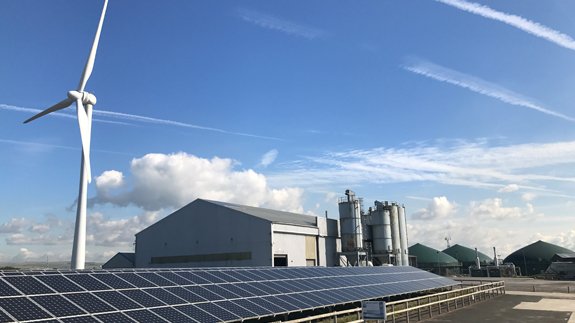Smart energy management services firm KiWi Power has won a National Grid contract to build a behind-the-meter battery, said to be the first of its kind in the UK.
The 4MW lithium-ion battery will be located at Cenin Renewables, a 20-acre renewable site at Parc Stormy in Bridgend, South Wales, which includes a low carbon cement facility, 3,000 solar panels, an anaerobic digestion plant and a wind turbine.
Smart battery technology aims to improve the efficiency of the supply and consumption of electricity particularly during times of peak demand. It allows large power users to harness energy storage with no upfront investment or risk, helping them to reduce bills and carbon footprint.
The latest project follows KiWi Power’s successful management of Northern Powergrid’s 2.5MW battery facility at Rise Carr substation, Darlington, as well as UK Power Network’s 6MW Leighton Buzzard battery.
The company will manage the battery at Parc Stormy – expected to be up and running by March 2018 – and has begun an extensive roll-out of similar behind-the-meter batteries across the UK within the commercial and industrial sectors.
KiWi Power currently has more than 300MW of assets under management, enabling large scale users to optimise their consumption patterns and achieve significant reductions in their energy costs.
Yoav Zingher, CEO of KiWi Power said: “KiWi Power is delighted to bring the benefits of battery technology to high energy users without them having to invest in the battery. This is a major first not just for us at KiWi but for the UK energy sector as a whole. We are able to offer similar fully financed batteries so companies can optimise their energy usage, go green and earn money.
“The UK is slowly waking up to the potential of flexibility and battery energy storage’s role in that. By applying Demand Side Response techniques widely used elsewhere in the world, the UK could save nearly 10GW of demand – roughly equivalent to three Hinkley Point C nuclear power stations.”
This is a promoted article.





